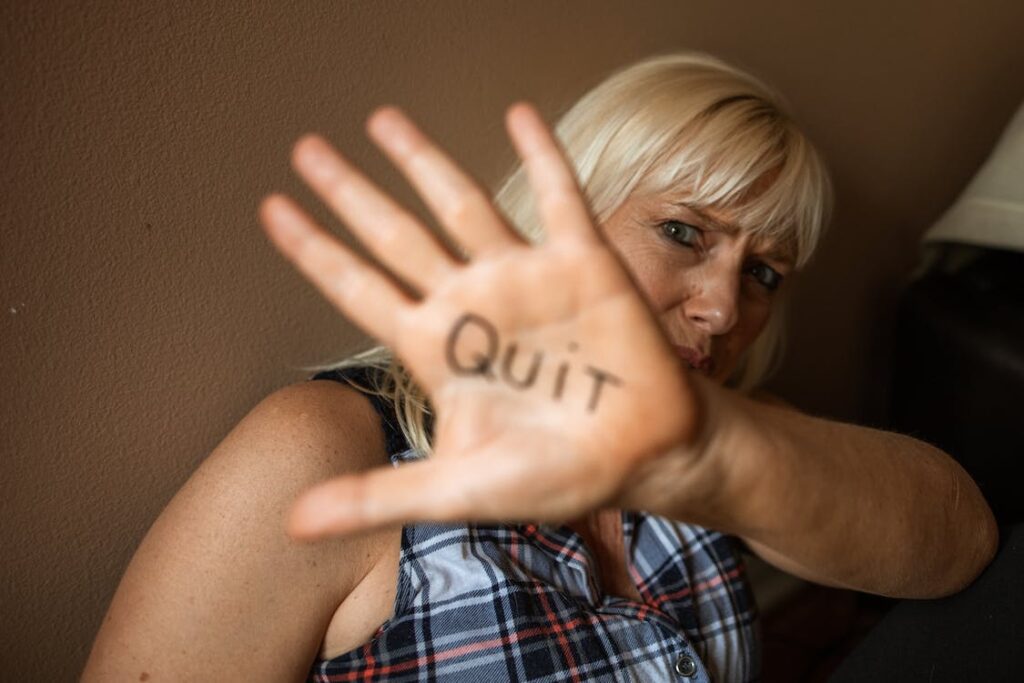Environmental Factors That Increase The Risk Of Cocaine Addiction

It’s undeniable how deeply your environment impacts the likelihood of developing an addiction to substances such as cocaine. In his seminal book, “The Power of Habit”, Charles Duhigg lucidly illustrates how our surroundings shape our habits, leading to addictive behaviors in some instances.
Contexts that expose you to chronic stress, poverty, social pressures, or early drug use can create a vortex that spirals into cocaine addiction. High-stress situations may coerce you into seeking solace in cocaine as an escape from daily pressures. When society or your peer group normalizes drug use or when poverty bears down on you, the risks of cocaine use, and ultimately addiction, escalates.
South Africa, unfortunately, grapples with a significant cocaine use issue, deeply rooted in various communities. An underreported fact is that according to a United Nations report, South Africa leads as the most substantial market for illicit drugs in Sub-Saharan Africa. Socioeconomic factors like unemployment and inequality, prevalent across the nation, contribute significantly to the risk of cocaine addiction.
Consider this simple, yet informative table that depicts the relationship between environmental factors and cocaine addiction:
| Environmental Factor | Risk Impact on Cocaine Addiction |
|---|---|
| Chronic stress | High |
| Poverty | High |
| Peer pressure | Medium to High |
| Early drug use | High |
Peer pressure, a fundamental environmental factor, can significantly increase cocaine addiction risks. When immersed in social circles that normalize cocaine use, you might find yourself enticed to experiment, gradually fostering a dependency.
Early exposure to drugs is another consequential environmental element. Teenagers often face drug introductions during their formative years, and with the adolescent brain’s vulnerability to addictive substances, the stage is set for potential addiction later.
Understanding these environmental factors is a crucial step towards curbing the escalating menace of cocaine addiction. However, knowledge alone is insufficient; it needs to be supplemented with action, and often, professional help.
FAQs about Cocaine Addiction
- What makes cocaine addictive? Cocaine increases levels of dopamine, a “feel good” neurotransmitter in the brain’s reward circuit. Over time, the brain gets used to these dopamine surges and demands more of the substance, leading to addiction.
- What are the signs of cocaine addiction? Symptoms can range from physical signs like dilated pupils, frequent nosebleeds, to behavioral changes such as mood swings, increased agitation, and a shift in social circles.
- Can cocaine addiction be treated? Absolutely. Addiction is a disease and like any other disease, it can be treated. Treatment may involve medications, behavioral therapies, counselling, or a combination of these.
Addiction specialists, with their training and expertise, can help you comprehend and navigate the cues that ignite the habit loop, as Duhigg outlines in his research. Through therapy, you can learn to substitute destructive patterns with healthier alternatives, thus breaking the chain of addiction.
South Africa is home to numerous facilities and programmes dedicated to aiding those wrestling with cocaine addiction. Organizations such as the South African Depression and Anxiety Group (SADAG), along with government initiatives like the Central Drug Authority (CDA), extend essential support.
Your environment plays an instrumental role in fostering cocaine addiction. Stress, poverty, social pressure, and early exposure to drugs serve as potent catalysts. But with a comprehensive understanding of these dynamics, bolstered with professional help, you can dismantle the habit loop and reclaim your life. Seeking help is not a sign of defeat but a testament to your strength. It takes immense courage to acknowledge your struggles and seek help. Be bold, anddon’t shy away from reaching out for the support you need.
Finding Alternatives to Substance Use
When fighting against cocaine addiction, it’s essential to find healthy alternatives to replace the harmful habit. Here are some useful suggestions:
Physical Activity: Regular exercise can produce endorphins, the body’s natural mood elevators, and provide a natural high that can substitute the artificial high from cocaine.
Healthy Eating: Proper nutrition is often neglected in individuals battling addiction. Incorporating a balanced diet helps in overall health, including mental well-being.
Meditation and Yoga: These activities help manage stress and create a sense of calm and balance in your life, reducing the need to use substances as a coping mechanism.
Hobbies: Discover or reignite your passion in something constructive, such as painting, playing a musical instrument, or gardening. These activities can provide a positive and productive distraction from drug cravings.
Support Networks: Building a network of supportive friends and family members is invaluable in your recovery process. They can provide encouragement and hold you accountable in your commitment to stay drug-free.
Consider this additional table which summarizes these alternatives:
| Alternative Activity | Benefit |
|---|---|
| Physical Activity | Provides a natural mood boost |
| Healthy Eating | Enhances overall well-being |
| Meditation & Yoga | Reduces stress and creates balance |
| Hobbies | Provides a positive distraction from drug cravings |
| Support Networks | Offers encouragement and accountability |
Recognizing the influence of your environment and understanding the need for professional intervention are monumental strides in your path towards recovery. However, the most significant stride is made when you choose to take control of your narrative and actively seek alternatives to substance use.
With the commitment to change and the right support, breaking free from the shackles of cocaine addiction is entirely within your grasp. It’s essential to remember, seeking help isn’t a mark of weakness. Instead, it is a testament to your strength and your resolve to regain control over your life. Empower yourself today and seek the help you deserve.
The voyage through understanding the environmental factors contributing to cocaine addiction, along with the exploration of healthier alternatives to substance use, unveils a path that is paved with the promise of recovery and hope. The knowledge acquired from these insights serves as a compass that guides you towards a life free of addiction.
As you embark on this lifelong commitment to recovery, remember that you are not alone. You have a wealth of resources and a community that stands ready to support and empower you. In addition, you are armed with an array of healthier alternatives that can help replace the habit of cocaine use, each one pointing towards a healthier, happier, and more fulfilling life.
Understand that your recovery, much like your life, will not be a straight, easy road. There will be times when you stumble, but know that each misstep is an opportunity to learn, grow, and become stronger. In the face of adversity, remember that the power to overcome lies within you.
As you strive for a cocaine-free life, also remember to be kind to yourself. Your journey towards recovery is a testament to your resilience, your strength, and your will to reclaim the life you deserve. Even in moments of self-doubt, remember that every day you choose recovery, you are one day closer to a life of freedom and peace.
You are the architect of your life. The journey may be challenging, but the transformation is well worth the struggle. As the great Maya Angelou once said, “You may encounter many defeats, but you must not be defeated. In fact, it may be necessary to encounter the defeats, so you can know who you are, what you can rise from, and how you can still come out of it.”
May you harness the strength within you to overcome the throes of cocaine addiction, reshape your life, and forge a future filled with health, happiness, and contentment.






